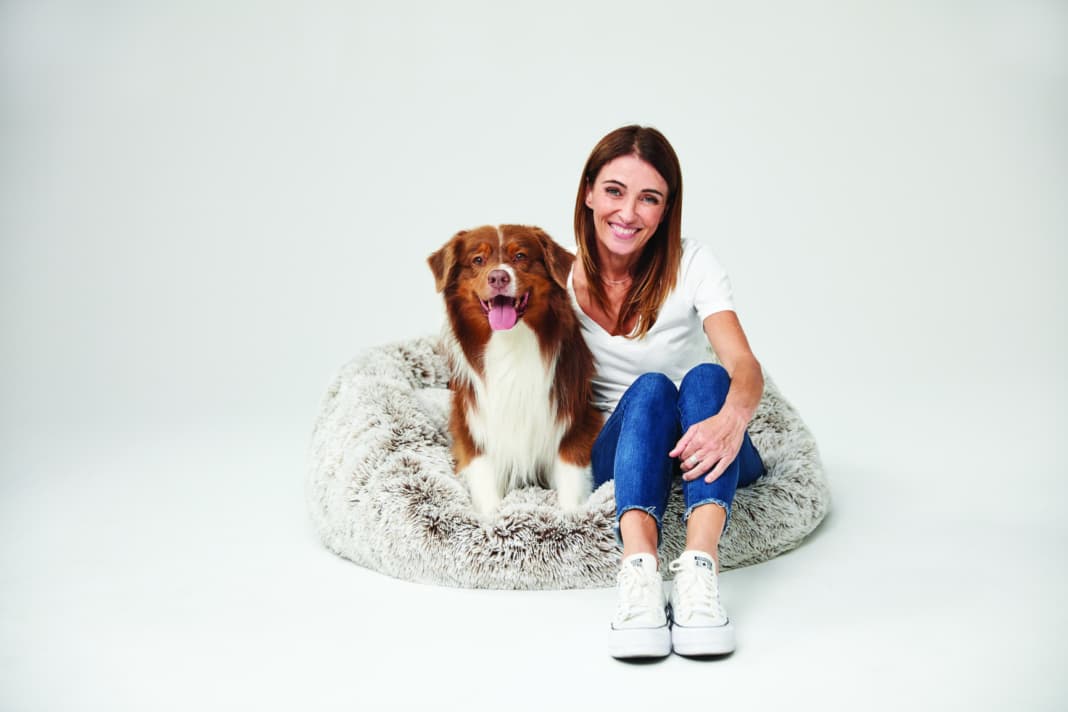Senior pets are truly special – they are gentle and wise – and just like with humans, senior years for our pets should be relaxed and enjoyable.
Veterinarian and Snooza pet products spokesperson, Dr Katrina Warren, says while it is difficult to watch our beloved pets age, providing them with some extra comfort and care can help them enjoy their golden years the way they deserve to.
When is your dog a senior?
Dogs are generally considered to be seniors from around eight years of age; however, larger and giant breeds of dogs are considered senior at a younger age, generally from five to seven years.
Once your pet is senior, it is recommended you take them to the vet for a thorough check-up twice a year. Pets can suffer from many of the ailments that affect humans such as cancer, diabetes, dental disease, kidney failure and loss of vision. Many of these conditions can be managed if detected early.
Diet
Good nutrition becomes even more important for your dog as they age. Seniors need a balanced diet that is lower in calories, protein and fat but higher in fibre. Be sure to discuss your ageing pet’s dietary needs with your veterinarian.
Exercise
Being overweight predisposes pets to heart disease and diabetes, and places unnecessary strain on hips and joints. Unfortunately, many older dogs gain weight due to a reduced amount of exercise.
It’s important for dogs to remain active and undertake regular short and gentle walks, in keeping with their health and ability. Weight loss can be a symptom of an underlying medical condition so it’s a good idea to regularly record their weight and discuss with your vet if you see changes.
Changes in behaviour
Pets go through changes and slow down as they age but these changes can also be symptoms of underlying medical issues. Watch for signs like difficulty getting up, climbing stairs or getting into the car as these can be signs of pain caused by arthritis.
As your dog ages, their sense of sight and hearing may become impaired. They may no longer react to sounds like they used to, they may be difficult to wake up, or they may not recognise you as well from a distance as they used to.
Some pets suffer from dementia-like illnesses as they age. If your pet appears confused, disorientated, forgets basics like toilet training, starts to bark or howl or becomes aggressive or displays any of these signs, a thorough vet check-up is recommended.
Winter
The cooler months can be tough on seniors, but it is important that your dog still goes outside for daily exercise, even though it is chilly. They need it to keep their muscles and joints moving and it helps manage their weight. Feed smaller meals instead of one large one as smaller meals are easier to digest and will deliver energy throughout the day.
Those with short coats or low body fat will benefit from a jacket to help keep them warm – choose something that is practical over fashionable.
Bedding
Older pets need to be kept warm, so make sure they have a cosy but supportive bed that is somewhere dry and away from draughts. A pet-safe heat pad can help add some extra warmth.
The Snooza Snuggler offers orthopaedic support with an orthopaedic foam mattress providing a stable base to help ease the pain of stiff joints while the soft bolstered side walls provide soft walls to lean against or to rest their heads.
If your dog has mobility problems, it is recommended to give them a bed with low sides so that it is easy for them to get in and out. The Snooza Ortho Sofa has an orthopaedic support foam base providing the supportive base for older dogs, while the soft filled bolstered walls add protection and comfort.
Planning for your pet’s future
Pets are often our cherished companions but very few of us have a plan in place should we find ourselves unable to look after them. That’s why it is important to prepare a petcare plan.
According to Pets & Positive Ageing (PAPA), a petcare plan provides important information for your pet’s next carer – such as their favourite food, that they are scared of vacuum cleaners, and where they like to sleep – to ensure they can be cared for in the manner to which they are accustomed.
For more information, visit petsandpositiveageing.com/petcare-plan.html
Assistance animals accreditation
A voluntary accreditation system for assistance animals started in the ACT on 1 July. It is designed to clarify existing access rights protected by Commonwealth law and give certainty to both businesses and persons with disability who rely on assistance animals.
Following the animal passing the test, the handler can register their assistance animal to be issued with an ID card that can be used to demonstrate to businesses, public transport operators and the broader community that the animal is safe accessing public spaces. Animals with an ID card have been trained and tested to ensure compliance with hygiene and behavioural standards for being in public spaces and public premises.
For more information, visit cityservices.act.gov.au
For more:



